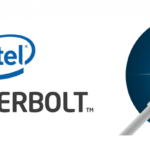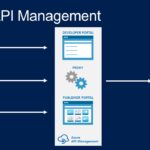According to a recent survey from Qualtrics, two key ambitions are central to what motivates Gen Z and millennial workers: career advancement and life outside of work.
In a study of 3,000 working Americans, Qualtrics found that more than one-third (35%) of workers overall say their career ambitions decreased over the past three years. However, younger workers – Generation Z and young millennials (18-34 years old) – are growing more ambitious, with 35% reporting higher career goals than they had pre-pandemic. The press release goes on to note that younger workers are more likely than their older colleagues to want to start their own business, join the C-suite, or lead other employees, while just 8% want to be individual contributors and not manage others.
Younger employees stand out from their elder counterparts in that they are more vociferous in their requests. These are more specifically:
- Twice as likely to ask for a raise in the upcoming year (compared to 20% of baby boomers, 41% of millennials and gen Z said they were extremely or very likely to do so).
- More than twice as likely to request a promotion in the upcoming year (38% of millennials and 37% of Gen Z versus 16% of boomers
- Three times as likely to change employers in the upcoming year (gen Z and millennials are 23% more likely to do this than the oldest respondents, who are only 9% more likely to do so).
These numbers should be alarming to business leaders already facing struggles to retain talent. Younger generations make up the largest segment of the workforce and, as baby boomers retire, will comprise an even larger cohort in the future. If they are not happy—if they are told to simply follow orders handed down from the corner office—they will either leave the company, or they’ll stay and post their concerns on social media, leading to internal distractions, lost productivity, and a reputational black eye for their employer.
Conversely, younger workers can be a tremendous resource in providing innovation, creativity, and energy. Companies that engage them in a transparent way can more effectively achieve business objectives, adapt to a fast-moving business environment, and outperform the competition.
How Companies Can Support Gen Z Employees
Years will pass before there is enough evidence to fully assess the effects of this experience on Gen Z. But current studies can assist businesses in learning what to anticipate from Gen Z workers and how to best manage them both now and in the future.
This analysis can benefit from research in three areas: skill development, stress management, and emotional intelligence development.
Development of skills
The disruption to Gen Z’s learning has gone beyond what schools could handle. Some transferred course material to online formats, which were frequently used by professors and teachers who weren’t educated for the platform. Others reduced the amount of direct instruction and encouraged students or parents to use independent projects and digital resources instead (depending on the grade level).
The majority of the time, learning has been attempted in settings where entire families are also housebound and juggling many obligations, which are not favourable to instruction without some kind of preparation. Tests have been dropped, grades have been changed to pass/fail, and deadlines have been extended.
Stress management
These choices will probably have costs, but they might be the best ones right now. According to research, Gen Zers already face a challenging cultural transition from college to the working world that can leave them feeling lost and bewildered. Employers and employees may need to exercise more tolerance for Gen Z’s adjustment to the working world now that their organized education has been disrupted and place more emphasis on intergenerational mentoring and support.
Emotional intelligence development
Companies should think about carefully thought-out strategies to smooth Gen Z’s transition, such as reconsidering orientation sessions, early assignments, and mentorship that emphasises skill development. For instance, orientation sessions typically include a brief introduction to manuals, computers, and other workplace fundamentals. A more thorough strategy might include initiatives to aid new hires in assimilating into the working culture, offer rotations within the firm, extend orientation during the first year of employment, etc. Moreover, programming can address important job needs, give strategic career assistance, and educate staff members on the organization’s aims and objectives, helping them to understand how and why they fit in.
Businesses have the chance to support Gen Zers in becoming the Next Great Generation of leaders. They will bring a distinct fusion of resilience and humanity to the workplace because they were put to the test at a very young age. Companies can benefit from these special formative experiences by offering younger employees structured support that will ease their transition and guarantee their position as valued team members.









